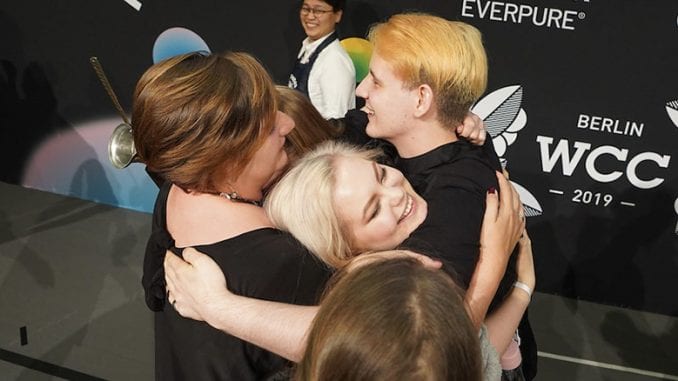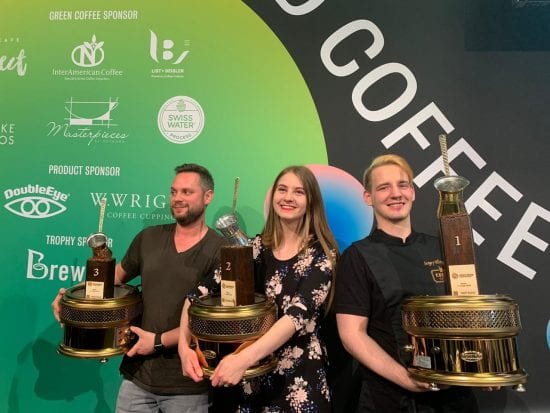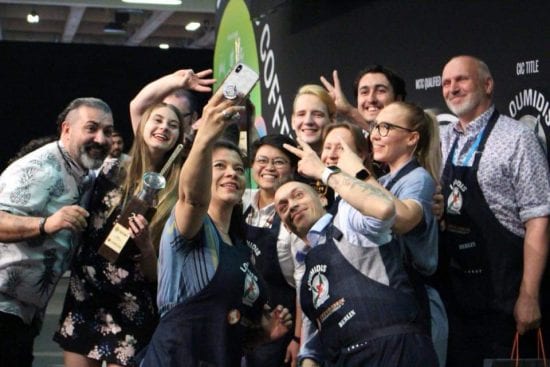
We wrap up our interview with the cezve/ibrik master about his win and the future of the cezve.
BY KATRINA YENTCH
BARISTA MAGAZINE ONLINE
Cover photo courtesy of Kristaps Selga for World Coffee Events
From the editor: This year, the World Coffee Championships in Berlin crowned four new champions, and we have been chatting with them for Barista Magazine Online. Our first installment of this four-part series can be found here with 2019 World Cup Tasters champ Daniel Horbat, and next we interviewed 2019 World Coffee In Good Spirits champ Dan Fellows. Last week, we began our discussion with 2019 World Coffee Cezve/Ibrik champion Sergey Blinnikov, and conclude it today by geeking out about his many home-brewing methods and what he sees for cezve ahead.

Katrina Yentch: What is one of the best experiences you have had so far in the coffee industry?
The faces of our guests when we prepared for them Geshas from the championships with which we participated, including the Perci (from Ninety Plus Gesha Estate). This taste experience was a novelty for the judges, and the guests received a true delight from completely new and unusual flavors! Seeing surprise and joy in their eyes is what makes us develop and work!
What are some of your favorite coffees to drink in cezve/ibrik? Any other brewing methods you enjoy?
I have no preferences for the coffee that I use to make a cezve. I pick it up by mood—it can be a bright, sweet, natural Ethiopian, acid fruity Columbian, or simple nutty Brazilian. In cezve, I can get any coffee that I want. Rarely, I experiment with combinations of juices and spices when it comes to my cup of coffee. I am interested in all the ways of making coffee! I have more than a dozen ways to brew at home! As with the cezve, I rely on the mood. After all, coffee can be so different, and to suit everyone’s taste!

What do you see for the future of cezve/ibrik?
First of all, it is growth. Cezve will conquer the hearts of people and professionals. We are now at the stage of the rediscovery of the cezve as a tool for specialty coffee. It has many qualities that do not possess any of the known methods of brewing. European countries already understand the potential of a cezve, now it’s up to the east and our friends across the ocean. The main thing is to understand that cezve takes time and is not designed for a quick take-and-go. This is a brewing method that is aimed at long and warm friendly evenings. I am sure that in a few years cezve will be on par with all other ways of making coffee. And it will be awesome!

